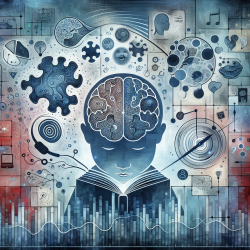In the realm of speech-language pathology, creating great outcomes for children is our passion. To achieve this, we must continually refine our skills and integrate the latest research into our practice. A recent review article, "What Do You Have in Mind? Measures to Assess Mental State Reasoning in Neuropsychiatric Populations," offers valuable insights that can help us improve mental state reasoning assessments and interventions for children. Here, we explore three key techniques from the research that can be implemented to enhance mental state reasoning in children.
1. Use Ecologically Valid Measures
The research highlights the importance of using assessment tools that reflect real-world social interactions. Traditional lab-based tasks often fail to capture the complexity of everyday social cognition. For example, the "Movie for the Assessment of Social Cognition" (MASC) uses dynamic video scenarios to assess understanding of thoughts, feelings, and intentions in a naturalistic context. Implementing such tools in our practice can provide a more accurate assessment of a child's social cognitive abilities.
2. Integrate Multi-Modal Assessments
Children with neuropsychiatric conditions often exhibit diverse cognitive profiles. Therefore, it's crucial to use a variety of assessment methods to capture the full spectrum of social cognition. The research suggests incorporating tasks that use verbal, visual, and audiovisual stimuli. For instance, the "Yoni Task" employs simple verbal instructions and eye-gaze cues to evaluate both cognitive and affective mental state attributions. By using multi-modal assessments, we can gain a comprehensive understanding of a child's strengths and areas for improvement.
3. Focus on Everyday Social Functioning
The review points out a common weakness in previous research: the limited investigation of how social cognitive skills translate to everyday functioning. To address this, we should prioritize assessments that measure practical social skills. Tools like the "Animations Task," which assesses spontaneous mentalizing through animated geometric shapes, can provide insights into how children apply their social cognitive skills in real-world situations. Additionally, developing interventions that target these practical skills can lead to better outcomes in social interactions and overall well-being.
Conclusion
By integrating ecologically valid measures, multi-modal assessments, and focusing on everyday social functioning, we can enhance our practice and create better outcomes for children. These evidence-based techniques not only improve our understanding of a child's social cognition but also guide us in developing targeted interventions that make a real difference in their lives.To read the original research paper, please follow this link:
What Do You Have in Mind? Measures to Assess Mental State Reasoning in Neuropsychiatric Populations.
